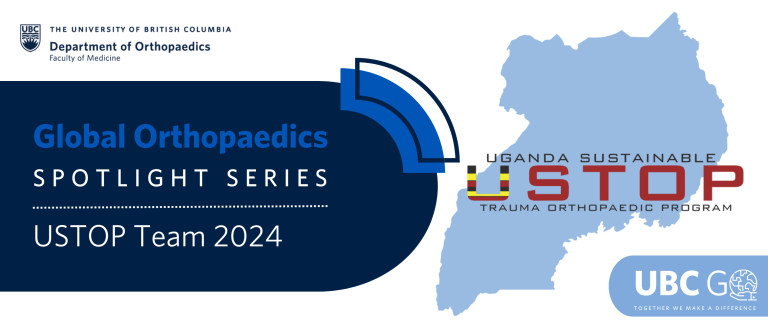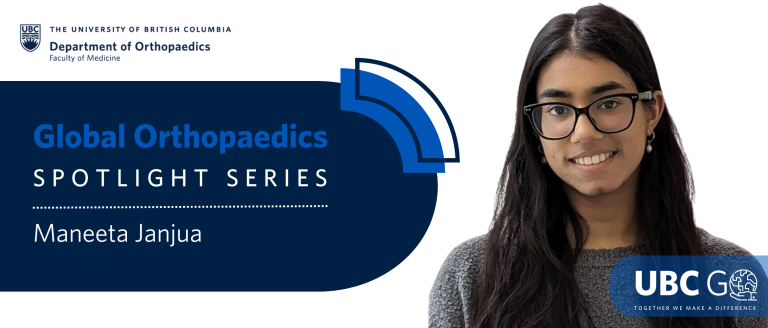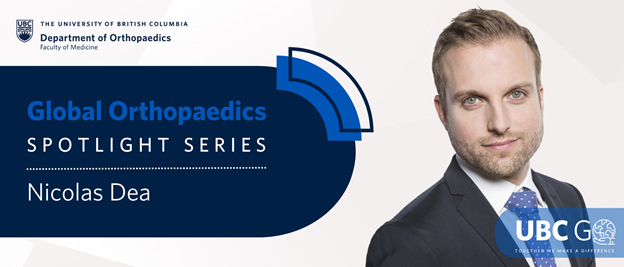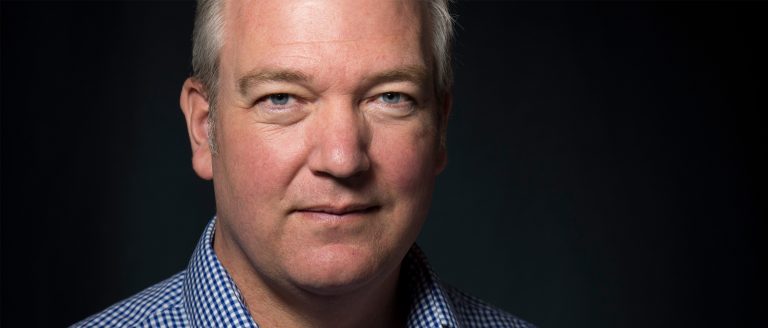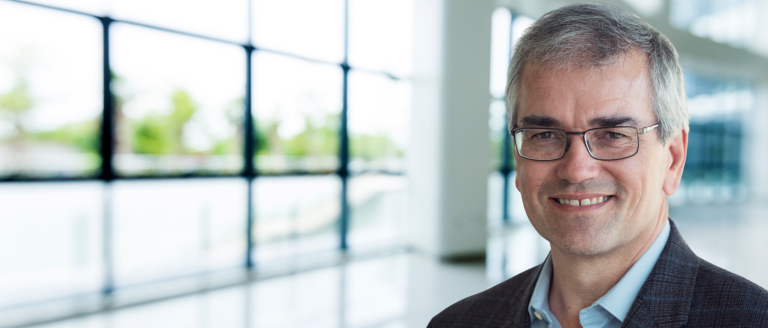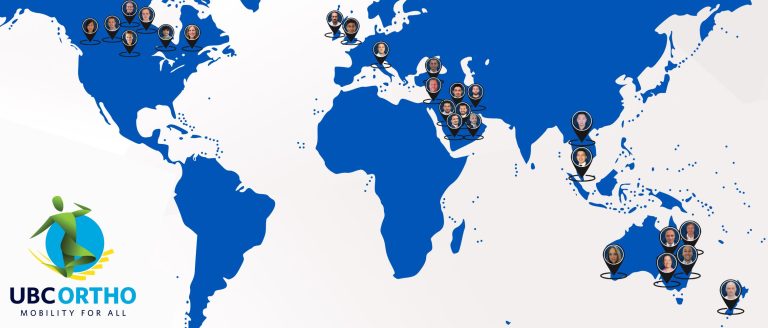Our UBC Global Orthopaedics (UBC GO) Spotlight series features in-depth conversations with a UBC Department of Orthopaedics member about their involvement in global orthopaedics initiatives.
In this spotlight, we learn about former UBC GO Coordinator Maneeta, who not only managed a range of initiatives but also took on the exciting challenge of organizing the Uganda Sustainable Trauma Orthopaedics Program (USTOP) trip.
Despite being an undergraduate student, Maneeta excelled in coordinating the trip’s logistics, ensuring the seamless execution of the team’s activities. From organizing flights and accommodations to overseeing the trip budget and supporting workshops in Uganda, Maneeta’s contributions were pivotal to the trip’s success. Her role onsite at the Mulago Hospital in Uganda involved managing unforeseen issues while providing essential support to the team of surgeons, nurses, and physiotherapists. Maneeta’s experience with USTOP marked a significant moment in her personal and professional development, inspiring her interest in orthopaedics and global initiatives.
Explore further to learn about Maneeta’s journey and contributions to the success of USTOP.

MANEETA JANJUA
Project/Initiative:
USTOP
What was your role?
I was the coordinator for UBC Global Orthopaedics, a new and unique program among Canadian institutions that focuses on advancing global orthopaedic initiatives. One of my responsibilities was to ensure the 2024 USTOP trip was successfully organized and executed. This included overseeing the logistics to ensure our 13-member team, including our collaborators from McMaster University, arrived safely in Uganda, successfully completed their educational activities, and returned home safely two weeks later.
Could you share a bit about your background and how it prepared you for this role?
I’m an undergraduate student, and this was my first full-time job. Specifically, being the GO coordinator came with the responsibility of being the USTOP coordinator as well. I didn’t have specific experience in administration or coordination that directly prepared me for this, but I have been involved in various part-time jobs and leadership roles over the years. Those experiences helped me develop skills like being detail-oriented, managing my time effectively, communication, and leading teams.
While those skills were valuable, this role demanded responsibilities that I wasn’t prepared for. For instance, I had never dealt with logistical aspects like transporting medical supplies, managing trip budgets, or coordinating with our Ugandan counterparts.
Additionally, coordinating a team of medical professionals, all of whom were my seniors, was entirely different from coordinating student groups. This required me to step up with confidence, even when I had moments of self-doubt, and trust my abilities. I also got lots of support from the USTOP team, which was crucial in helping me navigate the role.
It certainly felt like being “thrown in the deep end,” but I gained more from this experience than I could’ve imagined. I could not be more grateful for the trust my team placed in me.
What did you do as the USTOP coordinator? Can you walk me through your responsibilities?
Originally, we planned to schedule the trip for fall 2023, but after some discussion, we decided that April 2024 would be a more suitable time. My responsibilities spanned across the entire timeline of the trip—before, during, and after. Pre-trip, I led many tasks such as organizing flight bookings and accommodations, and calculating the trip budget. A key responsibility was ensuring our team of surgeons, residents, nurses, and physiotherapists had all the necessary documentation—medical licenses, vaccinations, and visas—so that they could legally enter Uganda and treat patients. Also, I sourced supplies like scrubs, masks, and gloves for the operating room and materials for the workshops.
During the trip, my role expanded to managing daily tasks and activities, including dinner planning, lunch catering, tracking all expenses, and providing support to our surgeons in their workshops. I also served as the team’s photographer and managed any unforeseen challenges and responsibilities, like arranging meetings with local officials or securing reliable Wi-Fi access. Post-trip, I oversaw reimbursements and calculated overall trip expenses to maintain accurate records.
Looking back, what were the key insights you gained and the main barriers you encountered?
This was my first time being involved in an activity of this scale, particularly in the context of global humanitarian work. It was incredibly eye-opening to see how healthcare is delivered in different parts of the world, and it highlighted how much we often take for granted. The experience was humbling, making me truly appreciate the resources we have, and it offered me a lot of growth, both professionally and personally.
One of my key takeaways was the importance of re-establishing relationships that our team had built with our Ugandan counterparts five years ago. Strong relationships are essential to the USTOP program, as they emphasize the sustainability of our initiative. However, due to disruptions caused by COVID and then the Ebola outbreak, USTOP had been unable to visit for several years. This year’s trip felt somewhat like a “first time” as we navigated the hospital’s changes. Despite these challenges, our team excelled, connecting smoothly with new hospital staff and re-kindling long-standing partnerships.
Is there anything else you’d like to add?
I am incredibly grateful for this opportunity. This role has made me realize how much I would like to be involved in global work. It was very fulfilling to contribute to a large mission focused on building sustainable healthcare in a low-resource community. I’d love to stay engaged with UBC GO or USTOP and continue supporting these impactful initiatives.





Learn more about USTOP and UBC Global Orthopaedics.
